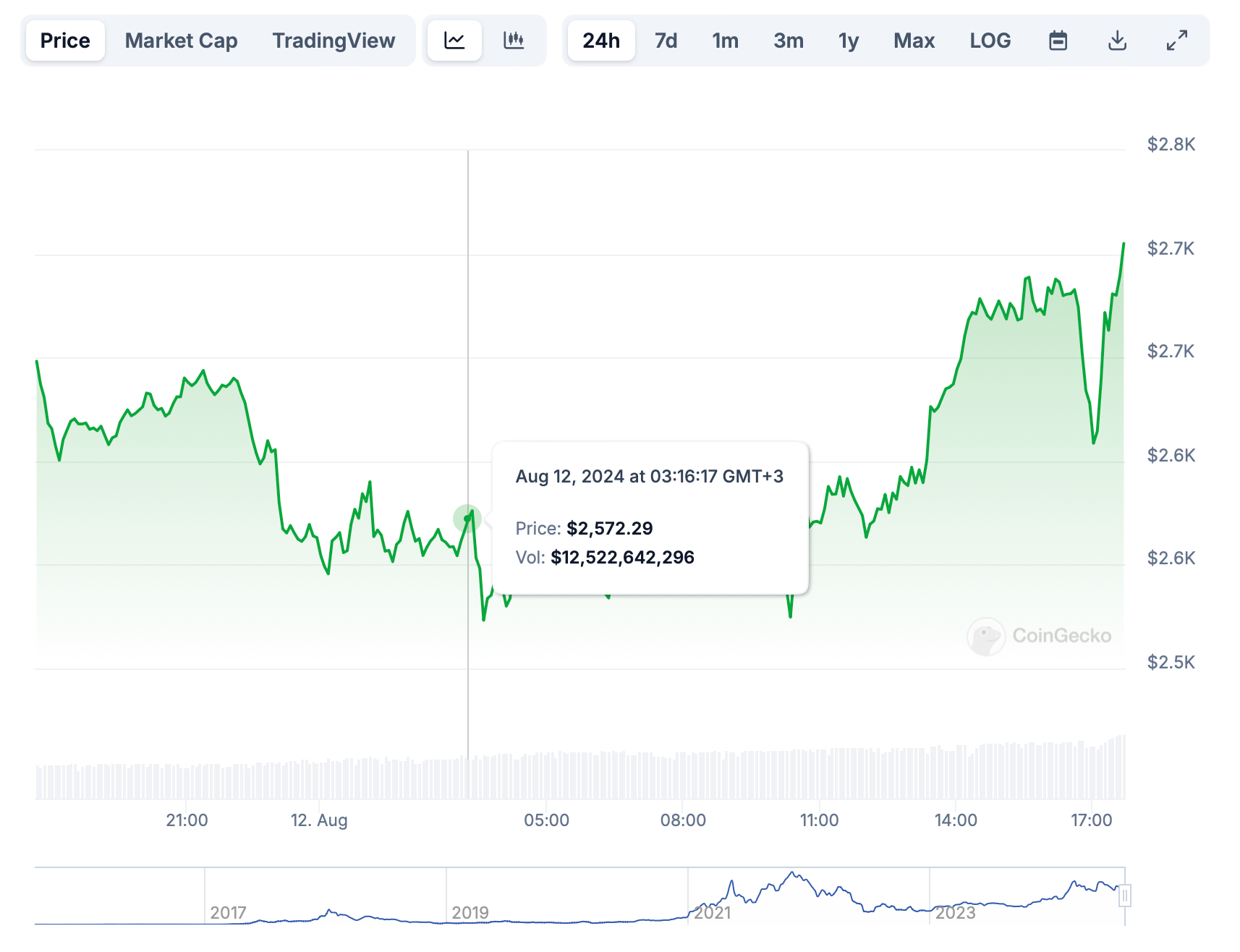“Mistakes happen,” “everyone makes mistakes,” “it happens to the best of us.” These are all words we say to console friends who made mistakes or even ourselves when we make pretty nasty blunders. But it is doubtful that any of these phrases will comfort a victim of a $90k “fat finger” error.
More: Spot Ethereum ETF Trading Starts Altcoin Season
If you’ve never heard of an example of a costly mistake, here’s one. An unknown crypto user has accidentally spent $90,000 in gas fetes over a transaction worth only $2,200 in Ether. Well, that’s only the converted value. The user spent 34.26 as gas fees to transfer 0.87 ETH.
𝐁𝐞𝐰𝐚𝐫𝐞 𝐨𝐟 𝐭𝐡𝐞 "𝐅𝐚𝐭 𝐅𝐢𝐧𝐠𝐞𝐫": 𝐀𝐧 𝐄𝐱𝐩𝐞𝐧𝐬𝐢𝐯𝐞 𝐋𝐞𝐬𝐬𝐨𝐧 𝐢𝐧 𝐂𝐫𝐲𝐩𝐭𝐨 𝐓𝐫𝐚𝐧𝐬𝐚𝐜𝐭𝐢𝐨𝐧𝐬
— Sascha (@Sascha_Web3) August 12, 2024
A user accidentally paid a $90k fee for a $2k ETH transfer due to a "fat finger" mistake.
To avoid costly mistakes like this, consider these tips:
➡… pic.twitter.com/0P8XMDgGUE
The expensive mistake was detected by an Ether Scan and announced by an X user under the pseudonym “DeFiac.“ Fat fingering, as it is known in the crypto world, simply means using the wrong transaction details when buying, selling, or transferring cryptocurrency.
Fat fingering is exactly what our anonymous crypto friend did, and the error is heartbreaking.
Someone just burned ~$90k on tx fee for a simple eth transfer. pic.twitter.com/R9beCnNZv1
— DeFiac (@TheDEFIac) August 11, 2024
One ETH is selling for $2,676 at the time of this writing. Gas fees for Ethereum transactions are also currently at their lowest in the year, hovering between 2 and 4 gwei as of August 11. So, with that, any transfer of ETH on the network shouldn’t cost more than $5.

Analyzing the error, the user overpaid by $89,195, which is quite a lot, to put it lightly. In percentile terms, the user overpaid by more than 1,783,900%. As far as fat fingers go, this was a really fat one. But you may be surprised to know that fat fingers are more common than you imagine.
We have heard of quite a few in recent years. October 10, 2023, was a big one. On that day, an NFT trader paid 1,055 ETH for an NFT that cost only $1,000. For more context, 1,055 ETH was worth $1.6 million at that time.
April 6, 2023, also came with another fat finger. That time, an OpenSea collector spent 100 ETH on a mint that cost nothing. The mint was absolutely free, and at the time, the collector’s 100 ETH was worth $191,000.
If you thought only retail individual traders made fat finger mistakes, you are wrong. Even the big crypto companies do it. Crypto.com accidentally transferred $7 million to an Australian user named Thevamanogari Manivel.
Apparently, Manivel thought it was his lucky day and never reported the error. In fact, he bought a multi-million dollar mansion in Melbourne with the funds and then sent about $4 million to an overseas bank account. She would later pay for the money with 209 days in jail for “dealing in the proceeds of crime.”
These examples have shown us that nobody is above mistakes, but some can be highly costly for either of the involved parties. It’s never a bad idea to double-check transactions before validating them, and it’s equally good to report any sudden and unknown “airdrops” you receive. You know what they say: “Better to be safe than spend 209 days in jail.”

Disclaimer: All materials on this site are for informational purposes only. None of the material should be interpreted as investment advice. Please note that despite the nature of much of the material created and hosted on this website, HODL FM is not a financial reference resource and the opinions of authors and other contributors are their own and should not be taken as financial advice. If you require advice of this sort, HODL FM strongly recommends contacting a qualified industry professional.




